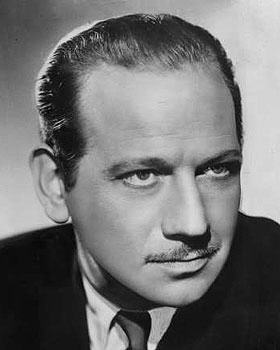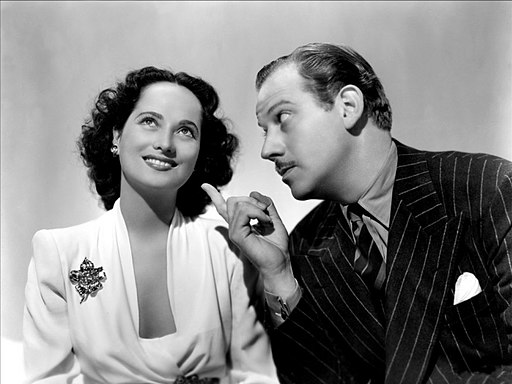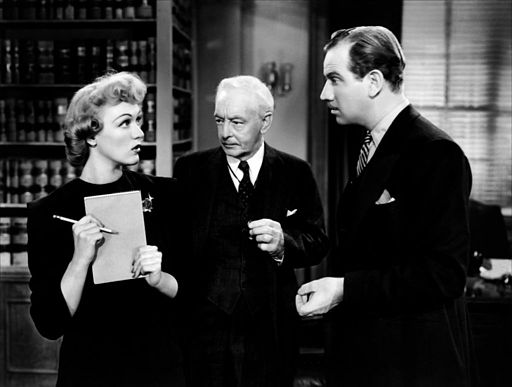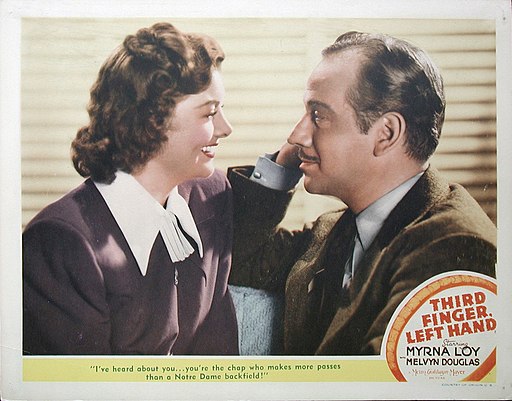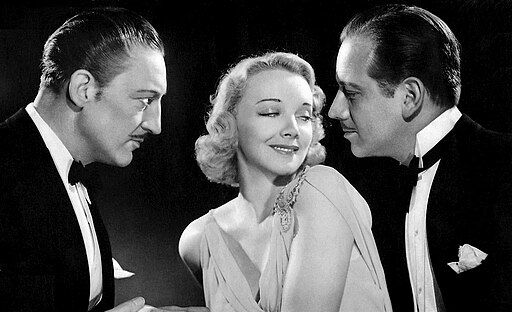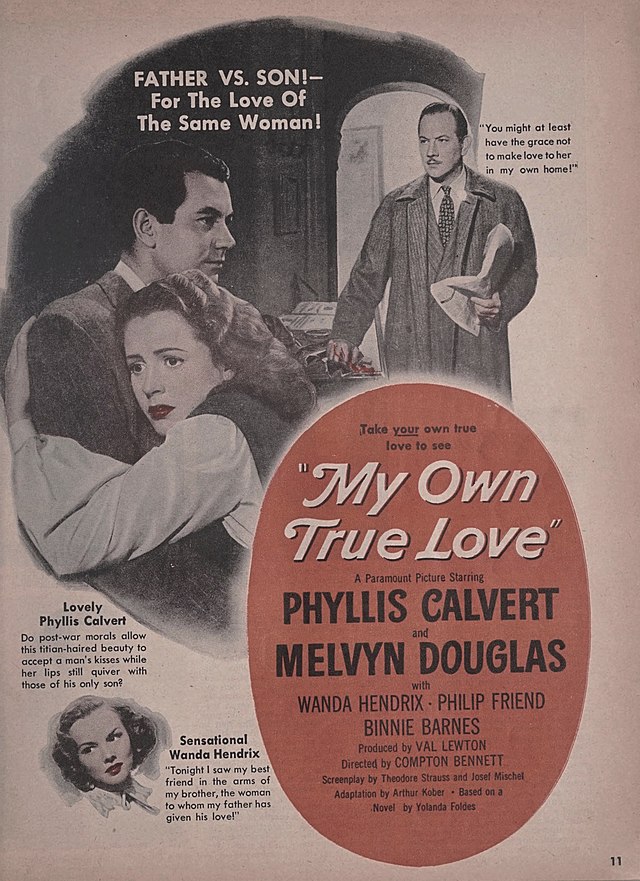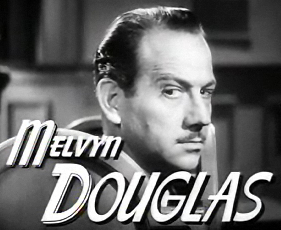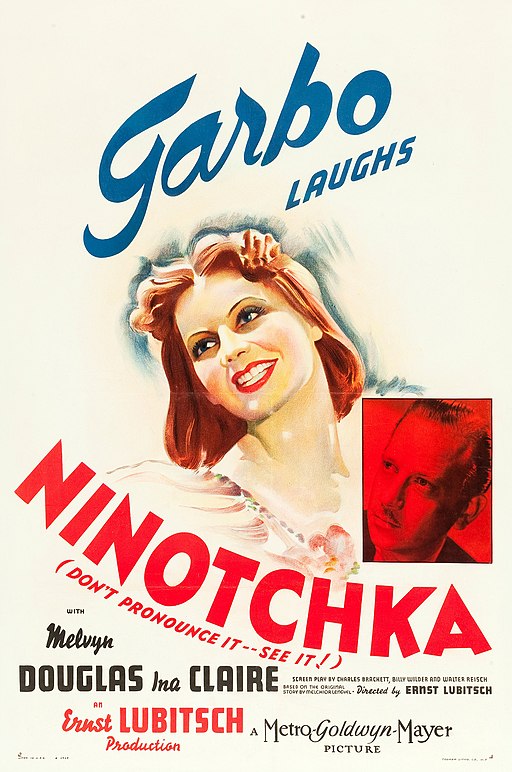Melvyn Douglas
back| Full Name | Melvyn Edouard Hesselberg |
| Stage Name | Melvyn Douglas |
| Born | April 5, 1901 |
| Birthplace | 1901 Birthplace: Macon, Georgia, USA |
| Died | August 4, 1981 |
| Buried | Forest Lawn Memorial Park, Glendale, Los Angeles County, California, USA. |
| Married to | Rosalind Hightower (1922–1931, divorced) - Mary Helen Montgomery (1931–1953, her death) - Helen Gahagan (1931 - 1980, her death) |
| Children | Melvyn Gregory Hesselberg (with Rosalind Hightower) - Peter Gahagan Douglas (with Helen Gahagan) |
| Notable films | Ninotchka (1939) - Hud (1963) - Being There (1979) - The Sea of Grass (1947) - The Changeling (1980) |
Melvyn Douglas
"The Debonair Versatilist of Golden Age Hollywood"
Melvyn Douglas began his acting career in the theater, transitioning to Hollywood in the 1930s. He quickly became known for his debonair, sophisticated roles in romantic comedies and dramas. His versatility as an actor was evident in his ability to handle both comedic and serious roles with equal aplomb.
Douglas's career spanned from the early sound era of cinema through the New Hollywood era. He won two Academy Awards for Best Supporting Actor for his roles in "Hud" and "Being There," showcasing his enduring talent. Additionally, he was noted for his work on stage, including winning a Tony Award.
Douglas was married three times and had two children. His third wife, Helen Gahagan, was a noted actress and politician. Douglas was politically active, especially in his later years, and was known for his liberal views. He was blacklisted during the McCarthy era due to his political beliefs but continued to find work in theater.
Related
Melvyn Douglas
Biography and Analysis of his Movie Career
Early Life and Beginnings
- Birth and Heritage: Born on April 5, 1901, in Macon, Georgia, Melvyn Edouard Hesselberg was the son of a concert pianist and composer from Latvia and a mother with English, Scottish, and Irish roots. This diverse cultural background likely contributed to his later versatility as an actor.
- Education and Early Ambitions: Douglas's education took him through various schools, including a stint at the Chicago Musical College. The vibrant cultural environment and his father's artistic influence kindled his early interest in performing arts.
The Journey to Stardom
- Theater Foundations: Douglas's acting journey began on the stage. He cut his teeth in stock theater companies and on Broadway, where he developed a reputation for his compelling stage presence.
- Hollywood Calling: The transition to Hollywood in the 1930s marked a significant turn in Douglas's career. He quickly became a sought-after actor, charming audiences with his good looks and sophisticated demeanor.
Career Milestones
- The Golden Age of Hollywood: During the 1930s and 1940s, Douglas enjoyed great success in Hollywood. He starred in romantic comedies and dramas, bringing a blend of charm and depth to his roles.
- Acclaimed Performances: His role in "Ninotchka" alongside Greta Garbo is particularly memorable. The later years saw him in more serious roles, earning an Academy Award for "Hud" and another for "Being There."
- Broadway Successes: Parallel to his film career, Douglas's Broadway work, notably in "The Best Man," showcased his dynamic range and earned him a Tony Award.
Personal Life: Love, Family, and Beliefs
- Three Marriages: Douglas's personal life was marked by three marriages. His first marriage to Rosalind Hightower gave him a son, Melvyn Gregory. His subsequent marriages to Mary Helen Montgomery and actress-politician Helen Gahagan were significant chapters in his life.
- Political Involvement: Douglas was not just an actor but also a passionate advocate for social justice. He was a vocal critic of McCarthyism and actively supported civil rights, reflecting his deep commitment to political and social causes.
Passions Beyond Acting
- Advocacy for the Arts and Social Causes: Douglas's passion was not confined to the screen and stage. He was deeply involved in advocating for the arts and various social causes, demonstrating a strong commitment to making a difference beyond his acting career.
The Final Curtain: His Death and Enduring Legacy
- Passing Away: On August 4, 1981, Melvyn Douglas's life came to a close in New York City.
- The Cause: He succumbed to pneumonia, a complication arising from his battle with cancer.
- A Lasting Impact: Douglas left behind a legacy as a versatile and deeply respected actor. His body of work, spanning comedic to serious roles, has made a lasting impact on both the film industry and the theater world. He is remembered not just for his artistic contributions but also for his strong personal convictions and activism.
Analysis of the Acting Style of Melvyn Douglas:
Melvyn Douglas, with his career spanning several decades, developed a distinct acting style that made him a memorable and versatile figure in both Hollywood and Broadway. His style can be analyzed through various lenses:
Sophistication and Charm
- Debonair Leading Man: In his early Hollywood career, especially in the 1930s and 1940s, Douglas was often cast as the debonair leading man. His roles in romantic comedies and dramas showcased his ability to blend sophistication with a certain easy charm, making him highly appealing in these genres.
- Chemistry with Co-Stars: Douglas had a knack for creating compelling chemistry with his co-stars, as seen in films like "Ninotchka" with Greta Garbo, where his charm complemented Garbo's more austere persona.
Versatility and Depth
- Range of Roles: Douglas didn't limit himself to a single type of character. He could effortlessly transition from light romantic comedies to more serious dramatic roles. This versatility is evident in his later work, such as in "Hud" and "Being There," where he took on more complex, nuanced characters.
- Ability to Convey Subtlety: His acting was marked by a subtlety that allowed him to convey deep emotions without over-dramatization. This was particularly important in films where his character required a layered portrayal.
Adaptability
- Transition from Stage to Screen: Coming from a theater background, Douglas was able to adapt his acting style from the stage to the screen. He understood the nuances of film acting, which requires a more understated approach compared to theater.
- Evolution Over Time: His style evolved with the changing dynamics of the film industry. From the early sound era to the New Hollywood era, Douglas's ability to adapt his style to the demands of the time kept him relevant and successful.
Impactful Supporting Roles
- Later Career Highlights: In his later years, Douglas showed that a supporting role could be just as impactful as a leading one. His Academy Award-winning performances in "Hud" and "Being There" were in supporting roles, yet they left a lasting impression due to his powerful acting.
Personal Touch
- Incorporating Personal Beliefs: Douglas often brought his personal beliefs into his roles. As a man known for his liberal views and political activism, these beliefs sometimes subtly influenced his portrayals, adding depth and authenticity.
Notable Movies featuring Melvyn Douglas:
1930s
- 1931, "Tonight or Never": Douglas plays a man who helps an opera singer realize her true potential on stage and in love.
- 1932, "As You Desire Me": He stars as a man who finds a woman he believes to be his long-lost wife.
- 1933, "The Vampire Bat": Douglas appears in this horror film about a village terrorized by killings that resemble vampire attacks.
- 1936, "Theodora Goes Wild": He plays a small-town woman who writes a scandalous bestseller, leading to comedic situations.
- 1939, "Ninotchka": Douglas is a charming count who falls for a stern Soviet envoy (Greta Garbo) in this romantic comedy.
1940s
- 1941, "That Uncertain Feeling": He plays a husband whose wife is courted by another man, leading to a comedic love triangle.
- 1943, "Three Hearts for Julia": In this romantic drama, Douglas is one of three men vying for the heart of a divorcee.
- 1947, "The Sea of Grass": He stars as a rancher battling homesteaders in this Western drama.
- 1949, "A Woman's Secret": Douglas appears in this film noir about a singing star's relationship with her protégée.
1950s
- 1951, "My Forbidden Past": He plays a man involved in a romantic triangle in New Orleans.
- 1957, "Sea Wife": In this drama, Douglas is among shipwreck survivors adrift on a raft.
1960s
- 1962, "Billy Budd": He stars in this adaptation of Herman Melville's novel about innocence and evil on a British warship.
- 1963, "Hud": Douglas won an Academy Award for his role as the principled father of a wayward son (Paul Newman).
1970s
- 1970, "I Never Sang for My Father": He plays a man struggling with his relationship with his aging father.
- 1979, "Being There": In this satire, Douglas plays a wealthy benefactor who takes in a simple-minded gardener with profound wisdom.
1980s
- 1980, "The Changeling": One of his final films, Douglas appears in this horror film about a man confronting a haunted house.
Trivia:
Was Melvyn Douglas on the Blacklist of McCarthy?
Melvyn Douglas was not blacklisted in the traditional sense during the McCarthy era, but he was certainly affected by the political climate of the time. Douglas, known for his liberal views and political activism, faced scrutiny during the Red Scare of the 1940s and 1950s.
Impact of Political Views:
- Liberal Activism: Douglas was openly liberal and politically active, which was risky during the height of McCarthyism. His political stance and his marriage to Helen Gahagan Douglas, a Democratic Congresswoman known for her liberal views, drew attention from those supporting the anti-Communist movement.
- Association with Suspected Communists: Douglas, like many in Hollywood, had associations with individuals who were suspected of having Communist sympathies. This period was marked by guilt by association, and many actors, writers, and directors saw their careers suffer as a result.
Career Impact:
- Subtle Impact on Work Opportunities: While Douglas continued to work in theater and film, his and his wife's political views likely influenced the types of roles and opportunities available to him during the peak of McCarthyism.
- Avoidance of Formal Blacklisting: Douglas managed to avoid being formally blacklisted, unlike many of his contemporaries. This may be attributed to his established reputation and his careful navigation of the political landscape of the time.
Personal Stance:
- Advocacy for Freedom of Expression: Douglas was a supporter of free speech and artistic freedom, values that were under threat during this period. His commitment to these principles, despite the risks, speaks to his integrity and courage.
Is Melvyn Douglas related to Kirk Douglas?
No, Melvyn Douglas and Kirk Douglas were not related. Despite sharing the same last name and both being prominent actors in Hollywood, they came from different backgrounds and families.
Melvyn Douglas was born Melvyn Edouard Hesselberg in 1901 in Macon, Georgia. His father was a Russian-Jewish immigrant, and his mother was of English, Scottish, and Irish descent.
On the other hand, Kirk Douglas, born Issur Danielovitch in 1916 in Amsterdam, New York, was the son of Belarusian Jewish immigrants. He later changed his name to Kirk Douglas as he began his acting career.
Memorable Quotes from Melvyn Douglas:
From "Ninotchka" (1939):
- Douglas's character, Count Leon d'Algout, has several charming and witty exchanges with Greta Garbo's character, Ninotchka. One notable line is, "The last mass trials were a great success. There are going to be fewer but better Russians."
From "Hud" (1963):
- As Homer Bannon, Douglas delivers profound lines that reflect his character's moral backbone. For instance, "Little by little the look of the country changes because of the men we admire."
From "Being There" (1979):
- Although his role as Benjamin Rand is more of a supporting one, Douglas's character provides insightful comments that add depth to the film's narrative.
From "I Never Sang for My Father" (1970):
- In this film, Douglas portrays a complex father-son relationship, with lines that resonate with many viewers: "Death ends a life, but it does not end a relationship."
Significance of his Role in Ninotchka for Douglas’ Career:
Melvyn Douglas's role in "Ninotchka" (1939) is particularly significant for several reasons, marking a pivotal point in his career:
Breakthrough in Romantic Comedy
- Genre Shift and Versatility: Before "Ninotchka," Douglas was known primarily for his work in dramas. This film showcased his versatility, proving he could excel in the romantic comedy genre. His performance demonstrated a lighter, more comedic side of his acting abilities, which was essential for diversifying his roles and appealing to a broader audience.
Chemistry with Greta Garbo
- On-Screen Partnership: "Ninotchka" is famous for being one of Greta Garbo's first full-fledged comedies. Douglas's role as Count Leon d'Algout and his chemistry with Garbo were crucial in bringing out the comedic elements of the film. Their interaction and Douglas's charming performance helped to soften Garbo's more serious screen persona, contributing to the film's success.
Critical Acclaim
- Reception and Acclaim: "Ninotchka" was critically acclaimed, and Douglas's performance was a significant part of that success. The film received multiple Academy Award nominations, including Best Picture. Such recognition further cemented Douglas's status as a leading actor in Hollywood.
Influence on Future Roles
- Expanded Opportunities: The success of "Ninotchka" opened up more opportunities for Douglas in romantic and comedic roles. This diversification was important in an era when typecasting was common. It allowed him to explore a wider range of characters and settings in his subsequent projects.
Contribution to Cinema History
- Iconic Film: "Ninotchka" is often regarded as one of the great romantic comedies of the Golden Age of Hollywood, and Douglas's role in it is a significant part of its legacy. The film is remembered for its wit, charm, and the way it balanced romance with political satire, with Douglas's performance being central to this balance.
Awards and Nominations:
Academy Awards
- 1963: Won the Academy Award for Best Supporting Actor for "Hud"
- 1970: Nominated for Best Actor in a Leading Role for "I Never Sang for My Father"
- 1979: Won the Academy Award for Best Supporting Actor for "Being There"
Golden Globe Awards
- 1964: Won the Golden Globe for Best Supporting Actor for "Hud"
- 1980: Won the Golden Globe for Best Supporting Actor for "Being There"
BAFTA Awards
- 1964: Nominated for Best Foreign Actor for "Hud"
Tony Awards
- 1960: Won the Tony Award for Best Actor in a Play for "The Best Man"
Other Honors
- Emmy Awards: Douglas was also recognized in television; he won an Emmy Award in 1967 for his performance in "Do Not Go Gentle Into That Good Night" on CBS Playhouse.
- Star on the Hollywood Walk of Fame: In recognition of his contributions to the motion picture industry, Douglas was awarded a star on the Hollywood Walk of Fame at 6423 Hollywood Boulevard.
Full list of Movies featuring Melvyn Douglas:
1920s to 1930s
1929: "The Broken Wing"
1930: "Fast and Loose"
1931: "Tonight or Never"
1932: "As You Desire Me", "The Old Dark House", "Prestige", "The Wiser Sex"
1933: "The Vampire Bat", "Nagana", "Counsellor at Law"
1934: "Woman in the Dark"
1935: "Annie Oakley", "She Married Her Boss", "Mary Burns, Fugitive"
1936: "The Gorgeous Hussy", "Theodora Goes Wild"
1937: "I Met Him in Paris", "Angel", "Captains Courageous"
1938: "There's Always a Woman", "The Toy Wife", "The Shining Hour", "Arsène Lupin Returns"
1939: "Tell No Tales", "Good Girls Go to Paris", "Ninotchka", "Too Many Husbands"
1940s
1940: "He Stayed for Breakfast", "Third Finger, Left Hand", "This Thing Called Love"
1941: "That Uncertain Feeling", "Two-Faced Woman"
1942: "We Were Dancing", "They All Kissed the Bride"
1943: "Three Hearts for Julia"
1947: "The Sea of Grass", "The Guilt of Janet Ames"
1948: "Mr. Blandings Builds His Dream House"
1949: "A Woman's Secret"
1950s
1951: "My Forbidden Past"
1956: "The Ambassador's Daughter"
1957: "Sea Wife", "Time Limit"
1959: "The Big Fisherman"
1960s
1960: "Strangers When We Meet"
1962: "Billy Budd"
1963: "Hud"
1964: "The Candidate"
1967: "Hotel"
1970s
1970: "I Never Sang for My Father"
1972: "The Candidate"
1979: "Being There"
1980s
1980: "The Changeling"
1981: "Tell Me a Riddle" (posthumously released)

